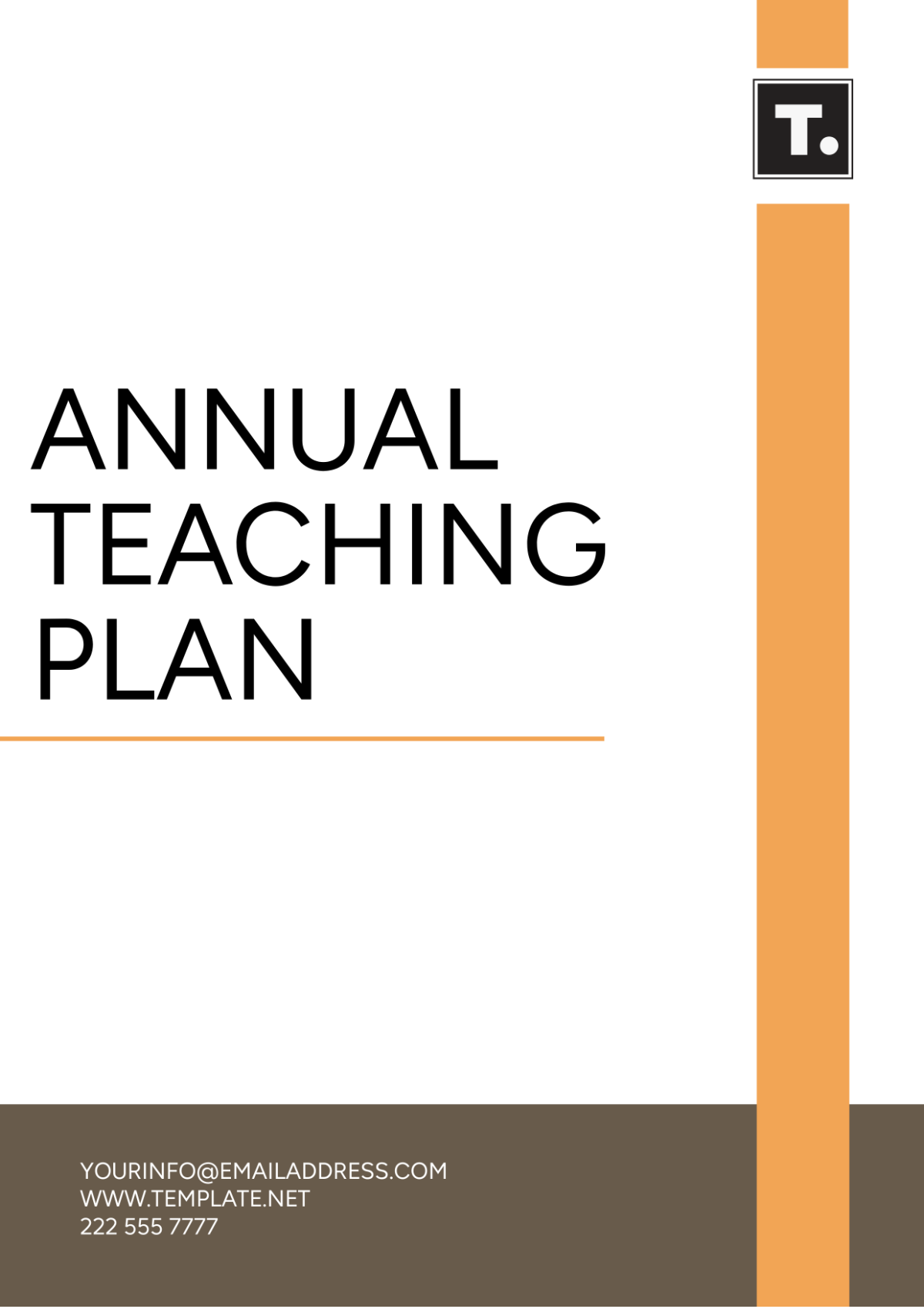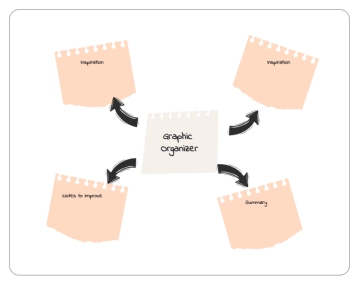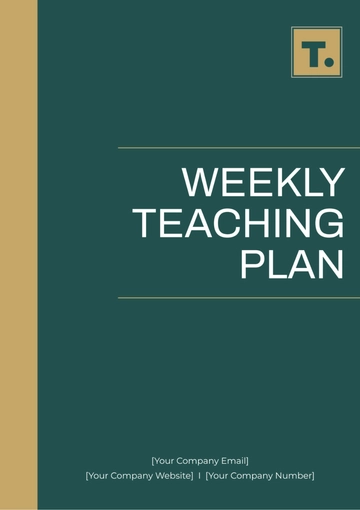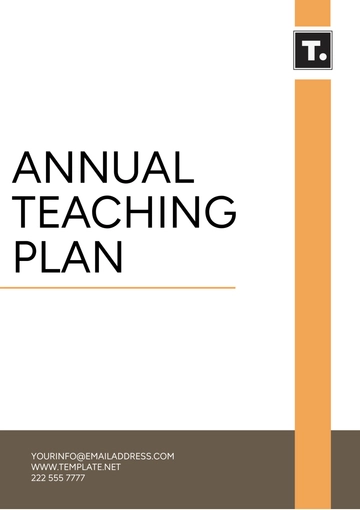Free Annual Teaching Plan

Prepared by: | [Your Name] |
Company: | [You Company Name] |
Department : | [Your Department] |
Date : | [Current Date] |
I. Introduction
This annual plan underscores the commitment of [Your Company Name]'s faculty and leadership to continually enhance the educational experience for students. By aligning with educational standards, fostering professional growth, and prioritizing student engagement, we aim to elevate learning outcomes and prepare students for success in an ever-evolving world.
II. Goals and Objectives
A. Goal: Align curriculum with standards.
Objective 1: Scrutinize curriculum standards from both external bodies and Khan Academy's internal guidelines to ensure coherence.
Objective 2: Identify areas within the curriculum that may require enhancement or revision to better meet student needs and educational objectives.
Objective 3: Strategize methods for aligning curriculum components effectively, fostering interdisciplinary connections where appropriate.
B. Goal: Enhance professional development.
Objective 1: Conduct comprehensive assessments, including surveys and evaluations, to discern areas where professional growth is needed.
Objective 2: Curate a diverse array of professional development opportunities, ranging from workshops to conferences, tailored to educators' needs.
Objective 3: Implement mechanisms to reinforce newly acquired knowledge and skills, such as peer coaching and collaborative projects.
C. Goal: Improve student engagement and learning outcomes.
Objective 1: Explore innovative pedagogical approaches that invigorate classroom dynamics and deepen student understanding.
Objective 2: Leverage technology to personalize learning experiences, catering to individual learning styles and abilities.
Objective 3: Employ ongoing assessment strategies to gauge student progress and provide targeted feedback for growth.
III. Curriculum Overview
This section outlines [Your Company Name]'s curriculum across different subjects, detailing thematic units and key learning objectives for a well-rounded educational experience.
Subject | Thematic Units | Essential Learning Objectives |
|---|---|---|
Mathematics | Algebra, Geometry, Trigonometry | Solve equations and inequalities |
Calculus, Statistics | Understand geometric concepts such as angles, shapes, and symmetry | |
Science | Biology, Chemistry, Physics | Explore the principles of calculus and its applications |
Environmental Science | Analyze statistical data and interpret results | |
Humanities | History, Literature, Art | Examine biological systems and ecological relationships |
Cultural Studies | Investigate historical events and their impact on society |
IV. Professional Development Plan
Needs Assessment: Through rigorous analysis of feedback mechanisms and performance metrics, we pinpoint areas where educators can benefit from professional development initiatives.
Professional Development Activities: Our robust calendar of events encompasses a spectrum of learning opportunities, from specialized training sessions to collaborative forums for sharing best practices.
Implementation and Follow-Up: Post-training support mechanisms, including coaching and mentorship programs, ensure that newfound knowledge is effectively applied in the classroom.
V. Assessment Plan
Types of Assessment: The assessment framework encompasses both formative and summative assessments, serving as pivotal tools for evaluating student progress and mastery.
Assessment Criteria: We establish clear criteria and rubrics aligned with educational standards, fostering transparency and consistency in evaluation processes.
Data Analysis and Feedback: Rigorous analysis of assessment data enables us to glean insights into student performance trends, facilitating targeted interventions and personalized feedback.
VI. Resources and Materials
Textbooks and Readings: Our curated selection of resources encompasses a blend of traditional textbooks and digital materials, catering to diverse learning preferences.
Technology Integration: [Your Company Name]'s suite of interactive tools and multimedia resources enriches the learning experience, promoting engagement and comprehension.
Classroom Materials: Adequate provision of physical and digital resources ensures that educators have the requisite tools to deliver effective instruction across diverse subjects and grade levels.
VII. Classroom Management and Environment
Classroom Rules and Expectations: Clear guidelines underscored by a culture of mutual respect and collaboration foster a conducive learning environment, conducive to optimal student engagement and achievement.
Student Engagement Strategies: Dynamic instructional strategies, such as collaborative learning and project-based activities, captivate student interest and promote active participation in the learning process.
Support for Student Well-being: We prioritize student well-being by embedding social-emotional learning opportunities and providing support services tailored to individual needs, ensuring a holistic educational experience.
- 100% Customizable, free editor
- Access 1 Million+ Templates, photo’s & graphics
- Download or share as a template
- Click and replace photos, graphics, text, backgrounds
- Resize, crop, AI write & more
- Access advanced editor
Enhance and Discover the Annual Teaching Plan Template, exclusively from Template.net. Crafted for educators, this editable and customizable template streamlines lesson planning. Seamlessly tailor your curriculum to suit your teaching style with ease. Editable in our Ai Editor Tool, it ensures effortless personalization for every educator's unique needs. Elevate your teaching experience today.
You may also like
- Finance Plan
- Construction Plan
- Sales Plan
- Development Plan
- Career Plan
- Budget Plan
- HR Plan
- Education Plan
- Transition Plan
- Work Plan
- Training Plan
- Communication Plan
- Operation Plan
- Health And Safety Plan
- Strategy Plan
- Professional Development Plan
- Advertising Plan
- Risk Management Plan
- Restaurant Plan
- School Plan
- Nursing Home Patient Care Plan
- Nursing Care Plan
- Plan Event
- Startup Plan
- Social Media Plan
- Staffing Plan
- Annual Plan
- Content Plan
- Payment Plan
- Implementation Plan
- Hotel Plan
- Workout Plan
- Accounting Plan
- Campaign Plan
- Essay Plan
- 30 60 90 Day Plan
- Research Plan
- Recruitment Plan
- 90 Day Plan
- Quarterly Plan
- Emergency Plan
- 5 Year Plan
- Gym Plan
- Personal Plan
- IT and Software Plan
- Treatment Plan
- Real Estate Plan
- Law Firm Plan
- Healthcare Plan
- Improvement Plan
- Media Plan
- 5 Year Business Plan
- Learning Plan
- Marketing Campaign Plan
- Travel Agency Plan
- Cleaning Services Plan
- Interior Design Plan
- Performance Plan
- PR Plan
- Birth Plan
- Life Plan
- SEO Plan
- Disaster Recovery Plan
- Continuity Plan
- Launch Plan
- Legal Plan
- Behavior Plan
- Performance Improvement Plan
- Salon Plan
- Security Plan
- Security Management Plan
- Employee Development Plan
- Quality Plan
- Service Improvement Plan
- Growth Plan
- Incident Response Plan
- Basketball Plan
- Emergency Action Plan
- Product Launch Plan
- Spa Plan
- Employee Training Plan
- Data Analysis Plan
- Employee Action Plan
- Territory Plan
- Audit Plan
- Classroom Plan
- Activity Plan
- Parenting Plan
- Care Plan
- Project Execution Plan
- Exercise Plan
- Internship Plan
- Software Development Plan
- Continuous Improvement Plan
- Leave Plan
- 90 Day Sales Plan
- Advertising Agency Plan
- Employee Transition Plan
- Smart Action Plan
- Workplace Safety Plan
- Behavior Change Plan
- Contingency Plan
- Continuity of Operations Plan
- Health Plan
- Quality Control Plan
- Self Plan
- Sports Development Plan
- Change Management Plan
- Ecommerce Plan
- Personal Financial Plan
- Process Improvement Plan
- 30-60-90 Day Sales Plan
- Crisis Management Plan
- Engagement Plan
- Execution Plan
- Pandemic Plan
- Quality Assurance Plan
- Service Continuity Plan
- Agile Project Plan
- Fundraising Plan
- Job Transition Plan
- Asset Maintenance Plan
- Maintenance Plan
- Software Test Plan
- Staff Training and Development Plan
- 3 Year Plan
- Brand Activation Plan
- Release Plan
- Resource Plan
- Risk Mitigation Plan
- Teacher Plan
- 30 60 90 Day Plan for New Manager
- Food Safety Plan
- Food Truck Plan
- Hiring Plan
- Quality Management Plan
- Wellness Plan
- Behavior Intervention Plan
- Bonus Plan
- Investment Plan
- Maternity Leave Plan
- Pandemic Response Plan
- Succession Planning
- Coaching Plan
- Configuration Management Plan
- Remote Work Plan
- Self Care Plan
- Teaching Plan
- 100-Day Plan
- HACCP Plan
- Student Plan
- Sustainability Plan
- 30 60 90 Day Plan for Interview
- Access Plan
- Site Specific Safety Plan


